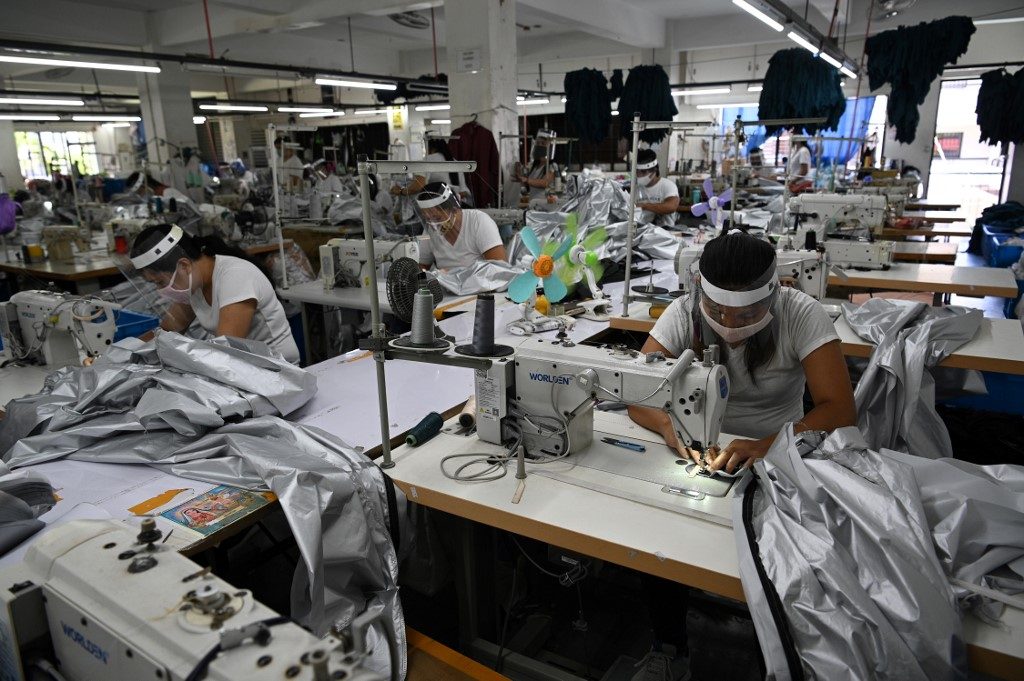SUMMARY
This is AI generated summarization, which may have errors. For context, always refer to the full article.


MANILA, Philippines (UPDATED) – Lockdowns, crippled supply chains, and canceled vacations due to the coronavirus crisis crushed the Philippines’ growth story in the 1st quarter of 2020.
Gross domestic product (GDP) for the 1st quarter contracted by 0.2%, said the Philippine Statistics Authority on Thursday, May 7.
The last time the economy contracted was 22 years ago, in 1998 during the extreme El Niño and Asian financial crisis.
GDP growth went into negative territory from the 6.7% growth registered in the 4th quarter of 2019 and the 5.6% in the 1st quarter of last year.
Negative growth came earlier than expected, as experts had projected it would occur in the 2nd or 3rd quarters.
A negative GDP growth indicates business closures and job losses due to weak economic activity.
The government admits this is merely a glimpse of what’s to come.
“Containing the spread of the virus and saving hundreds of thousands of lives through the imposition of the ECQ (enhanced community quarantine) has come at great cost to the Philippine economy. Even so, our priorities are clear: to protect lives and health of our people,” said Acting Socioeconomic Planning Secretary Karl Chua in an online briefing on Thursday.
Household consumption significantly slowed down by 0.2% as almost all items posted weaker growth. An exception was household spending on health, which grew by 11.5%.
Growth in the services sector significantly moderated to 1.4%. Industry sector growth declined by 3%, with a drop in manufacturing and construction and a sustained decline in mining and quarrying. Agriculture contracted by 0.4% due to lower production of palay and fishing and aquaculture.
Chua said the government economic team is hoping for a V-shaped recovery or an immediate bounce once lockdown restrictions ease.
The government aims to revive the economy by restarting infrastructure projects. Government spending accelerated by 7.1% during the period.
ING Bank Manila senior economist Nicholas Mapa revised his full-year projection to -2.9% from -2.2%, as the contraction came earlier than widely expected.
“Given the current hole left by COVID-19 in the economy, we are expecting government to double up efforts to plug the gaps by way of increased spending as the private sector appears to have lost all the punch from its consumption arm,” Mapa said.
Finance Secretary Carlos Dominguez III previously said zero growth is the country’s best scenario for the full year of 2020 due to the pandemic.
The Philippines is bracing for a technical recession or at least two straight quarters of negative economic growth.
GDP is the total value of all finished goods and services produced within a country in a specific period. It provides a snapshot of the health of a country’s economy and is used by policymakers and experts in decision-making.
To cushion the pandemic’s impact on the economy, the government has started giving out cash to the poorest households, streamlined inspections at checkpoints, and is set to ramp up infrastructure activities. These will be funded by both loans and funds from the national government.
As of Wednesday, May 6, the Philippines has over 10,000 cases of COVID-19, according to the Department of Health. – Rappler.com
Add a comment
How does this make you feel?
There are no comments yet. Add your comment to start the conversation.